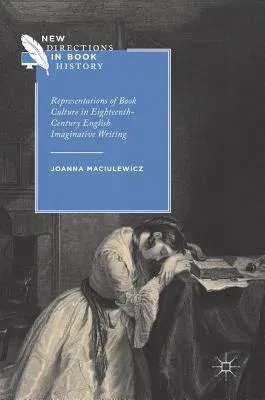Joanna Maciulewicz
(Author)Representations of Book Culture in Eighteenth-Century English Imaginative Writing (2018)Hardcover - 2018, 2 August 2018

Qty
1
Turbo
Ships in 2 - 3 days
In Stock
Free Delivery
Cash on Delivery
15 Days
Free Returns
Secure Checkout

Part of Series
New Directions in Book History
Print Length
288 pages
Language
English
Publisher
Palgrave MacMillan
Date Published
2 Aug 2018
ISBN-10
331992608X
ISBN-13
9783319926087
Description
Product Details
Author:
Book Edition:
2018
Book Format:
Hardcover
Country of Origin:
NL
Date Published:
2 August 2018
Dimensions:
21.01 x
14.81 x
1.75 cm
ISBN-10:
331992608X
ISBN-13:
9783319926087
Language:
English
Location:
Cham
Pages:
288
Publisher:
Weight:
508.02 gm